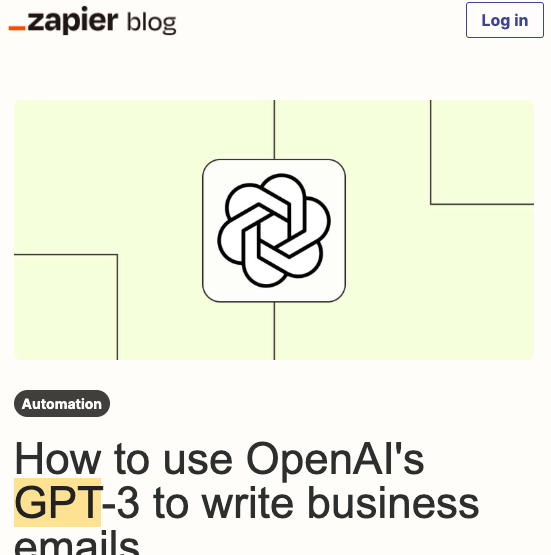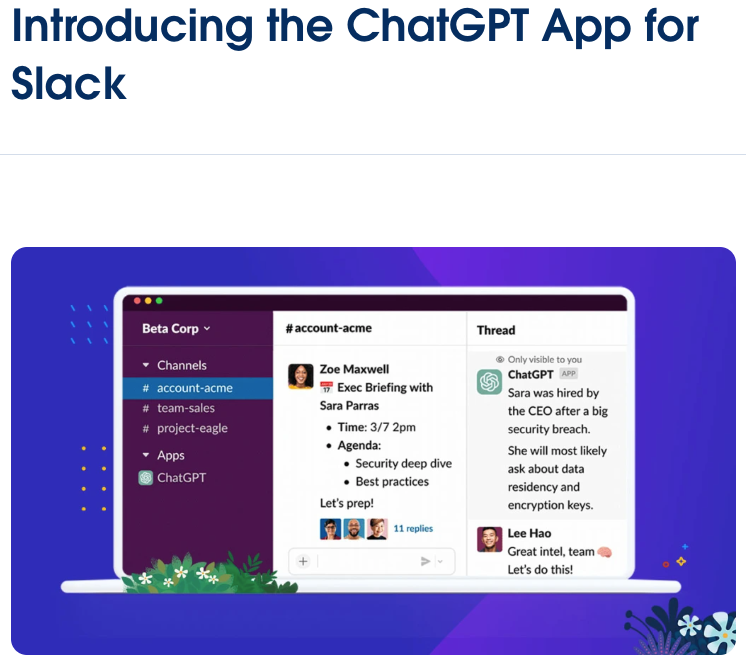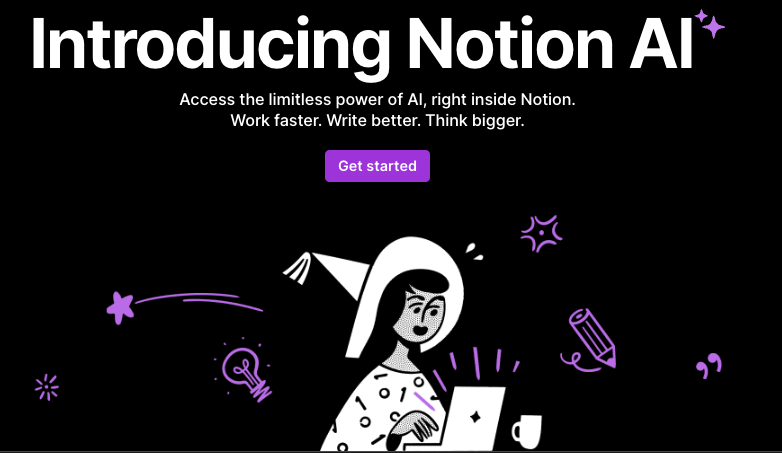The Age of Intelligent Machines: ChatGPT and the Future of Artificial Intelligence

ChatGPT took the world by storm just a few weeks ago. It is a digital robot that can answer both simple and complex questions. While I wrote yesterday about the risks of relying on AI for creativity, ChatGPT can be an enabler for many things, including creativity.
Among other things, ChatGPT can:
- Write songs
- Write a business plan
- Write copy for marketers
- Write code from very generic instructions.
- Write a story about any characters you tell it to
- Write what many business analysts take a day or two to deliver
It's almost like magic.
You can ask ChatGPT for ideas on a topic, and it will give you as many as you want. With that context in mind, you can ask for variations or twists on those ideas and keep interacting and iterating, just as you would with a human.

What is ChatGPT?
GPT stands for generative pre-trained transformer. It was developed by OpenAI, founded in 2015 by notable Silicon Valley royalty such as Elon Musk, Peter Thiel, and Reid Hoffman, who were once partners at PayPal. The company has been led mainly by Sam Altman, who gained popularity for successfully managing Y-Combinator through its growth.
ChatGPT was released in November of 2022, and in just a few days, it became clear how impactful it would be. Unlike popular digital assistants like Alexa and Siri, ChatGPT launched with an unparalleled ability to interact with humans. Most notably, ChatGPT can obtain context from your prompts and build on them to create even more appealing answers to your requests.
Use Cases
For example, take the following interaction (in Spanish), where I ask GPT to tell me a bedtime story about a character named Henry who dreams of becoming a Formula 1 driver, a World Cup champion, and winning the Masters Golf.

The story continues for a few more paragraphs, tying everything together with a motivational closing about not forgetting where he came from and the importance of working hard and following one's passion.
On another occasion, I wanted to learn about Real Estate. Where else to look but YouTube University? I found an interesting video, but it was pretty long. So I exported the transcript from YouTube and asked GPT to summarize it:

And it provides me with a condensed version of a lengthy YouTube video.

Another use case is for reading and digesting a project's long Request for Proposal (RFP). If it's too lengthy, you can send it to ChatGPT to do the dirty work for you:

And, voilá:

As you can see, the possibilities are endless.
Ripple Effects
Moreover, OpenAI has released a set of APIs allowing developers to embed GPT into their software. Over the past few weeks, many mainstream tech companies have jumped on the hype and are now offering AI solutions within their services.



Many GPT extensions are available, including one I use for my Gmail.

But it doesn't stop there. OpenAI is also enabling DALL-E 2, which is similar to GPT, but instead of providing text responses, it generates digital images of what you request.

AI is taking "happy little accidents" to another level.

Closing Thoughts
These examples are only the beginning.
Artificial intelligence has many current and potential uses. A new skill set is emerging that involves knowing the best prompts to use with AI. In many ways, we are exploring uncharted territory. AI can be used for good, but it can also be used for evil.
For now, I invite you all to try ChatGPT for yourselves. If nothing else, have fun asking questions. In a way, it's like typing in a domain name in the 90s when the internet was taking off. But, who knows, your business or career may depend on you catching this wave early on. So best not to watch how this all plays out from the stands.





Comments ()